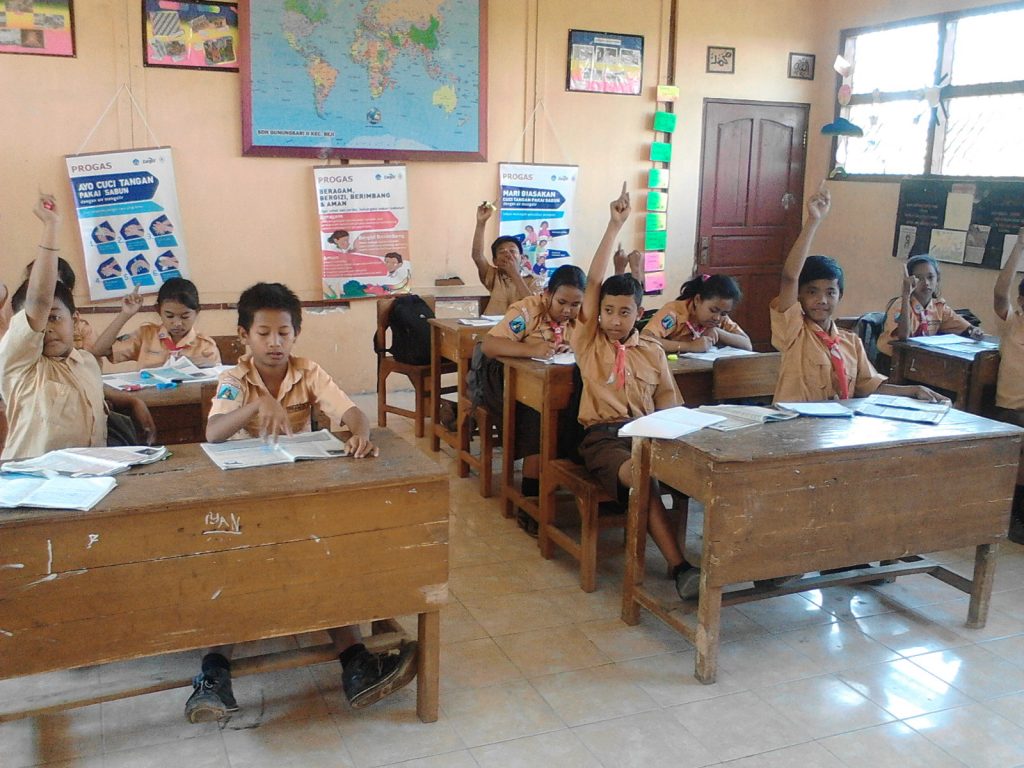
Harvesting Hope: How Cargill Is Helping Farmers and Students in Indonesia
By Nurhasan, Yayasan Cempaka and Jeffry Pupella, WFP
Every morning at 5 a.m., 12-year-old Ely wakes to the sound of roosters crowing outside her bedroom window in the Gunung Sari Village in Indonesia. It’s time to get ready for school. Gunung Sari Village is a remote community far from the district’s capital. In order to reach the classroom on time, Ely must begin her half-mile trek at dawn on her bicycle.
Before the World Food Programme (WFP) launched its school meals program in her school, Ely often made that trip on an empty stomach. Her father, Safata, used to work for a shoe factory before losing his job two years ago. Now he struggles to put food on the table as a day laborer at the local farming plantation.
“I’m not earning much. I will get about IDR 700,000 each month if I work every day in the plantation,” Safata tells us. That works out to be less than $2 per day—which isn’t enough to feed himself, his wife and three children.
“I’m really happy that Ely and other students in her school receive the school meals. Many of the students at Gunung Sari Primary School II come from low-income families.”
These school meals don’t just nourish hungry children like Ely. Thanks to support from Cargill, these school meals are homegrown, which means smallholder farmers in Indonesia are providing fresh, locally produced crops to source these school meals. This approach creates a sustainable supply chain and a reliable market.

WFP/Nurhasan
Through the school meals program, a grassroots women’s association is involved in overseeing the purchase, delivery and cooking of meals. More than 800 students like Ely in four rural schools in Banten, East Java and NTT provinces benefit from Cargill’s support.
“The teachers always give us delicious breakfast at school,” Ely said. “My favorite meal is vegetable porridge with chicken. But I also like vegetable noodles with chicken.”
The project is part of a three-year, three-country partnership between Cargill, WFP USA and WFP to build sustainable supply chains for school meals in Kenya, Indonesia and Honduras. The partnership offers technical assistance and support for smallholder farmers—including training and tools, such as hybrid seeds and fertilizer—to improve the quality and quantity of their harvests. This approach not only provides the right nutrition for children in need, it also helps improve agricultural productivity and earning potential for farmers.
Approximately 1 in 3 children in Indonesia is stunted as a result of chronic malnutrition. Undernourishment in school-age children may impact their ability to concentrate and succeed in the classroom. Undernourished children are more likely to fall sick and be absent from school.
“Ever since I started eating healthy breakfast at school, I don’t have to study with an empty stomach anymore,” Ely said. “Studying with an empty stomach used to make me very sleepy in class.”
Since 2012, WFP has provided school meals to the most vulnerable students in Indonesia, expanding its initial pilot to feed 100,000 students across 11 districts. The program has already resulted in more diverse diets and higher attendance rates in participating schools. Dropout rates, meanwhile, are three times lower than schools that don’t receive support from WFP or Cargill.
By harnessing the power of leading companies like Cargill, WFP is strengthening markets, boosting household incomes and building national capacity to take over safety net programs that protect the most vulnerable.
As the world’s largest provider of school meals, WFP is helping children in the world’s poorest classrooms achieve their full potential. Homegrown school meals double this impact by empowering smallholder farmers with better tools and technology to improve the quality and quantity of their harvests.




